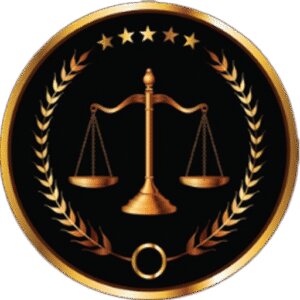Best Father's Rights Lawyers in Neuquén
Share your needs with us, get contacted by law firms.
Free. Takes 2 min.
Free Guide to Hiring a Family Lawyer
List of the best lawyers in Neuquén, Argentina
About Father's Rights Law in Neuquén, Argentina
This guide summarizes the main points about fathers rights in Neuquén, Argentina. Family law in Argentina is governed primarily by the national Código Civil y Comercial de la Nación (reformed in 2015) together with provincial procedural rules and the actions of local family courts. Fathers have legal rights and obligations relating to the recognition of paternity, parental responsibility, physical custody and contact, and child support. The legal framework emphasizes the best interests of the child and promotes shared parental responsibility when that is appropriate for the child.
Why You May Need a Lawyer
Family law matters can be emotionally charged and factually complex. A lawyer can help you in many common situations, including:
- Establishing or challenging paternity, including representation in DNA procedures.
- Seeking custody or a specific parenting time arrangement when parents disagree.
- Drafting or modifying formal agreements about custody, access and child support.
- Applying for or defending against claims for child support (alimentos), and enforcing payment orders.
- Obtaining urgent protective measures when there are safety concerns for you or your child.
- Handling interstate or international relocation of a child, including consent and court permission issues.
- Enforcing court orders, for example by requesting wage garnishment, asset seizure, or sanctions for noncompliance.
- Navigating mediation or alternative dispute resolution and preparing documents for court proceedings.
Local Laws Overview
Key legal points and local institutions relevant in Neuquén include:
- National law framework: The Código Civil y Comercial de la Nación sets out parental responsibility, paternity rules, child support obligations and the principle that decisions must be guided by the best interests of the child. Many substantive family law concepts are governed at the national level.
- Parental responsibility: The concept of parental responsibility replaces older notions such as patria potestad. It includes duties and rights for caregiving, education, health decisions and representation of the child.
- Custody and contact: Courts decide physical custody and communication arrangements with the child based on the childs best interests. Shared responsibility and shared custody are possible where appropriate.
- Paternity: Paternity can be established voluntarily at the Registro Civil by recognition, or judicially through an action of filiación. DNA testing is commonly used to resolve disputes about biological parentage.
- Child support - alimentos: Both parents have financial obligations for the childs needs. Support orders can include food, health care, education and reasonable extras. Courts may order interim support while a case is pending.
- Family courts and procedures in Neuquén: Family matters are heard in the Juzgados de Familia or equivalent chambers within the Poder Judicial de la Provincia del Neuquén. Provincial procedural rules determine steps, timeframes and requirements for mediation and hearings.
- Mediation and conciliation: Many family disputes are subject to mediation or conciliation requirements before a full judicial hearing. Mediation is designed to reach agreements outside of protracted litigation, but mediation results can be converted to court-approved agreements.
- Enforcement and urgent measures: Courts can order provisional measures to protect the child or to secure support payments. If a parent fails to comply with court orders, mechanisms such as wage garnishment, asset seizure or contempt proceedings may be available.
- Public legal assistance: If you cannot afford a private lawyer, you may be eligible for assistance through public defense offices or legal aid services in Neuquén.
Frequently Asked Questions
How do I legally establish paternity in Neuquén?
Paternity can be established in two main ways. First, by voluntary recognition at the Registro Civil, where a father signs the birth certificate or a recognition statement. Second, by judicial action of filiación if the mother or a third party initiates a request in family court. Courts may order genetic testing if paternity is contested. A local family lawyer can explain the documents and procedures needed at the Registro Civil or in court.
Can I get custody of my child if I am the father?
Yes. Fathers can request custody or shared custody. Courts decide based on the childs best interests, taking into account the childs needs, each parents ability to care for the child, the existing relationship history and stability. Shared custody arrangements are increasingly recognized where both parents can provide appropriate care.
What is the difference between custody, parental responsibility and visitation?
Parental responsibility refers to legal rights and duties towards the child such as making decisions about health, education and religious upbringing. Custody often refers to physical custody - where the child lives. Visitation, also called a communication or convivencia regime, refers to scheduled times the non-resident parent spends with the child. Courts may divide responsibilities and set a custody and visitation plan that best serves the child.
How is child support calculated and enforced?
There is no single national formula that applies in every case. Courts consider the childs needs, the parents incomes and reasonable living standards. Support can include basic needs, education and health expenses. If a parent fails to pay, courts can order enforcement measures such as wage garnishment, bank account seizure or seizure of assets. A lawyer can help prepare a claim for support and request provisional measures if needed.
What should I do if I am not named on the birth certificate?
If you are not on the birth certificate and you believe you are the father, you can request voluntary recognition at the Registro Civil if the other parent agrees. If there is a dispute, you can file an action for filiación in family court to seek a judicial declaration of paternity and, if appropriate, custody and support rights. DNA testing may be ordered by the court.
Does the mother have the right to prevent me from seeing my child?
No parent can unilaterally deny lawful access if there is a court order granting visitation or shared custody. If there is no agreement, you should seek a court order that establishes a formal communication and convivencia regime. If a parent denies access in violation of a court order, enforcement remedies are available through the family court.
Can a court modify an existing custody or support order?
Yes. Either parent can request a modification if there has been a substantial change in circumstances, such as a move, change in the childs needs, a parent losing income or evidence of neglect or abuse. The court will reassess the situation in light of the childs best interests and may order adjustments to custody, visitation and support.
What if the other parent wants to move to another province or country with the child?
Moving a child to another province or country usually requires either the consent of the other parent or a court order. If the move would significantly alter the childs relationship with the non-moving parent, the court will evaluate whether the relocation is in the childs best interests. International moves may also involve additional legal requirements under international conventions and local immigration rules.
Are there protections if I face false allegations or accusations?
False allegations are serious and can harm both your relationship with your child and your legal position. You should seek immediate legal counsel. Courts will consider evidence, and urgent measures can be sought if allegations involve risk to the child. Your lawyer can help gather evidence, challenge unfounded claims and protect your rights during investigations or hearings.
How long will a family law case take in Neuquén?
Timeframes vary widely depending on the case complexity, whether the dispute is contested, the need for expert reports or DNA tests, and the court backlog. Simple voluntary recognition or mediated agreements can be resolved quickly. Contested custody or complex support cases can take months or longer. A local family lawyer can give a more precise estimate based on the facts of your case and the court calendar.
Additional Resources
When seeking help in Neuquén, consider these local and regional resources:
- Juzgados de Familia del Poder Judicial de la Provincia del Neuquén - family courts that handle custody, support and paternity cases.
- Registro Civil de la Provincia del Neuquén - for birth registration and voluntary recognition of paternity.
- Public legal assistance offices or defensorías - these may provide free or low-cost legal help for people who qualify.
- Provincial offices or agencies responsible for the protection of children and adolescents - these bodies can assist in cases involving risk to a child.
- Mediation centers and family conciliation services - for out-of-court dispute resolution.
- Local bar associations - to find accredited family law attorneys in Neuquén.
Next Steps
If you need legal assistance for a fathers rights matter in Neuquén, consider the following steps:
- Collect relevant documents - birth certificate, identification, proof of income, communication records, school or health records and any existing court orders or agreements.
- Contact a family law attorney in Neuquén who has experience with paternity, custody and support matters. Ask about their experience, fees and initial assessment process.
- If cost is a concern, check eligibility for free legal aid or public defender services in the province.
- Consider mediation or family dispute resolution early - these processes can produce faster and less adversarial outcomes when both parents can negotiate.
- If there is an immediate risk to your child or you need emergency relief, request urgent provisional measures from the family court or seek assistance from child protection agencies.
- Keep a careful record of communications, visits, expenses and any incidents that relate to your case. Documentation is valuable in court and in negotiations.
Acting promptly and with informed legal guidance improves the chance of a resolution that protects the childs best interests and your parental relationship.
Lawzana helps you find the best lawyers and law firms in Neuquén through a curated and pre-screened list of qualified legal professionals. Our platform offers rankings and detailed profiles of attorneys and law firms, allowing you to compare based on practice areas, including Father's Rights, experience, and client feedback.
Each profile includes a description of the firm's areas of practice, client reviews, team members and partners, year of establishment, spoken languages, office locations, contact information, social media presence, and any published articles or resources. Most firms on our platform speak English and are experienced in both local and international legal matters.
Get a quote from top-rated law firms in Neuquén, Argentina — quickly, securely, and without unnecessary hassle.
Disclaimer:
The information provided on this page is for general informational purposes only and does not constitute legal advice. While we strive to ensure the accuracy and relevance of the content, legal information may change over time, and interpretations of the law can vary. You should always consult with a qualified legal professional for advice specific to your situation.
We disclaim all liability for actions taken or not taken based on the content of this page. If you believe any information is incorrect or outdated, please contact us, and we will review and update it where appropriate.









